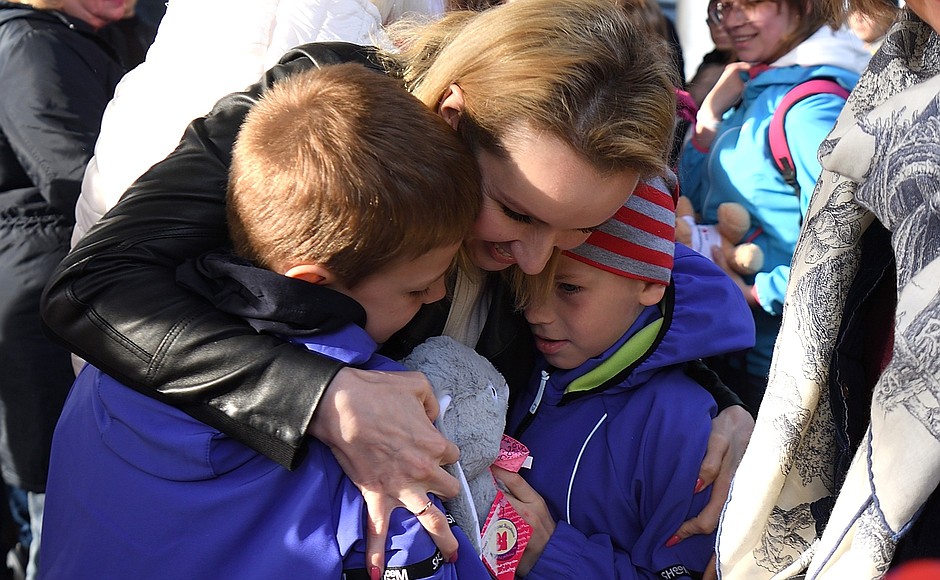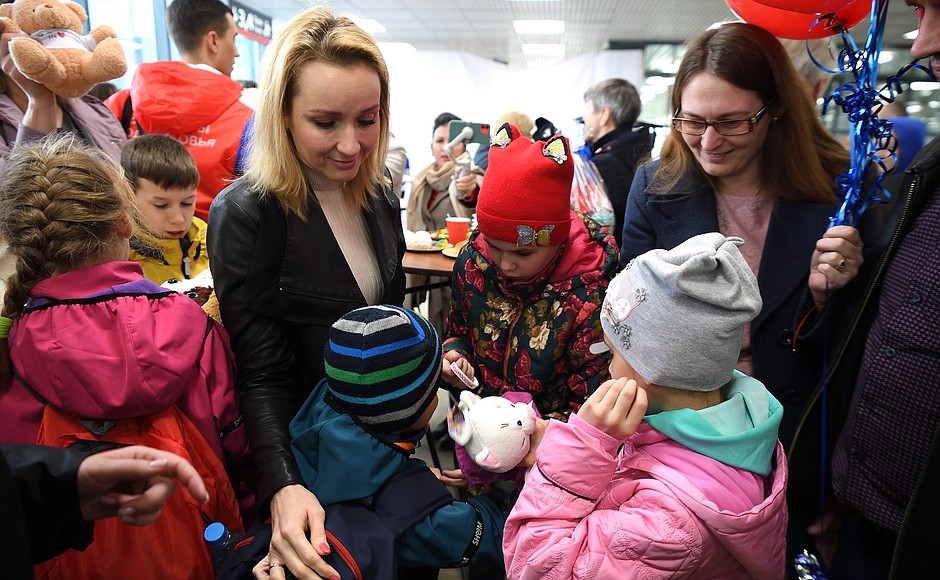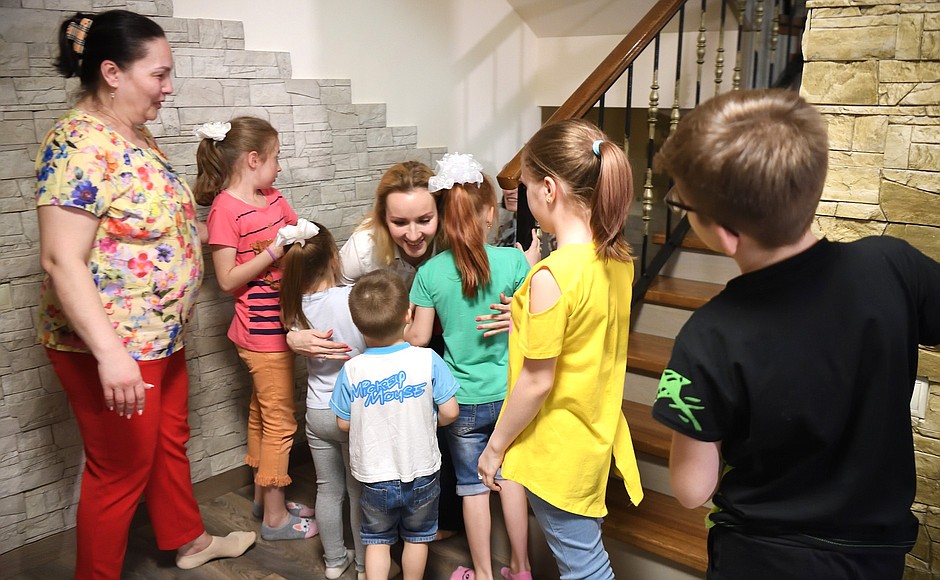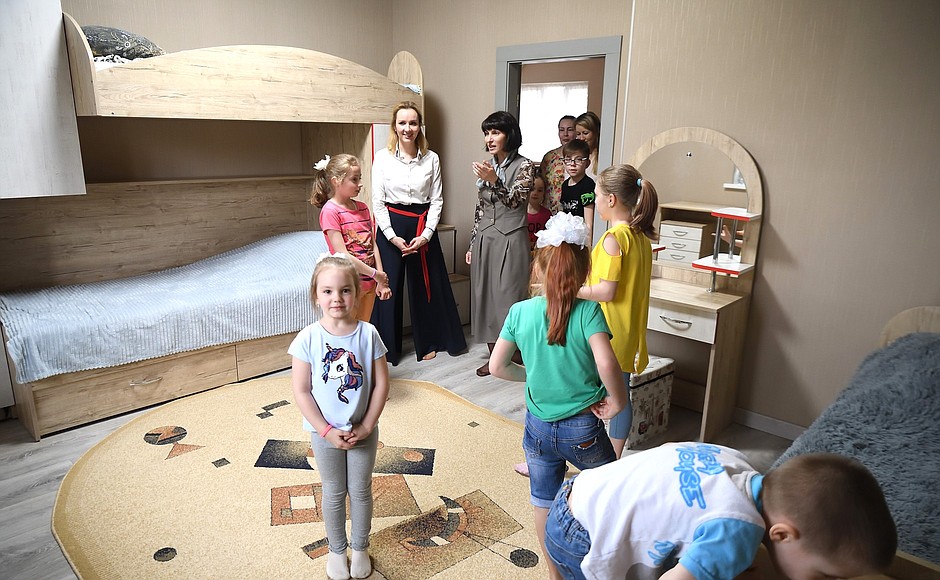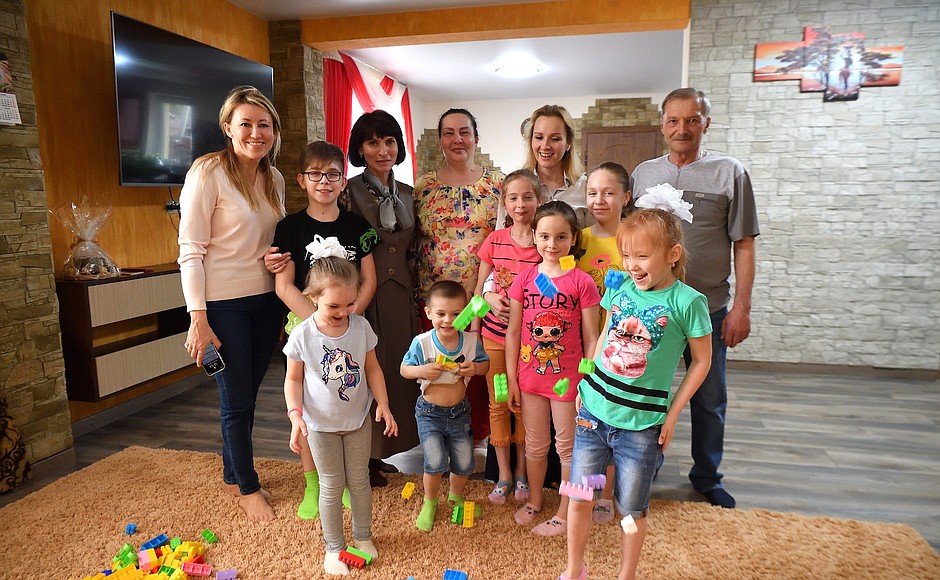On April 23, Presidential Commissioner for Children’s Rights Maria Lvova-Belova and Governor of the Moscow Region Andrei Vorobyov welcomed orphaned children arriving by train from the Donetsk People’s Republic and placed them with ten families from several districts of the Moscow Region. The specific needs, personal circumstances and health conditions of every child were taken into consideration when selecting the families. The foster families either have many children of their own or have experience as adoptive families. Some of the families have been fostering children from Donbass since 2014.
During their journey, the children were accompanied by representatives of the Presidential Commissioner’s Office, staff of children’s organisations in the DPR, the Moscow Region Child Protection Services, doctors and counsellors as well as Advisor to the Head of the Donetsk People’s Republic for Children’s Rights Eleonora Fedorenko and Moscow Region Children’s Ombudsman Ksenia Mishonova.
The majority of the children come from large families and have siblings. The youngest child, a boy, is 3 years old, and the oldest, a girl, is 17 years old. Most of the children are aged 9 to 11. Four children have disabilities, including phenylketonuria, mental disorders such as autism and epilepsy, and musculoskeletal disorders.
On April 24, Maria Lvova-Belova visited one of the foster families that had taken care of two girls, sisters Viktoria, 10, and Olesya, 8, who had been evacuated from Donbass and arrived the day before. The foster parents have significant fostering experience. Since 2015, they have been raising six children aged five to ten, including children with disabilities.
More than 1,000 orphaned children and children deprived of parental care arrived from Donbass children’s homes. Many Russians expressed willingness to foster them. The Presidential Commissioner’s Office has already received around 800 requests. All interested parties continue to be involved in the rehabilitation of the children evacuated from Donbass, their treatment, education, and the search for their relatives.
